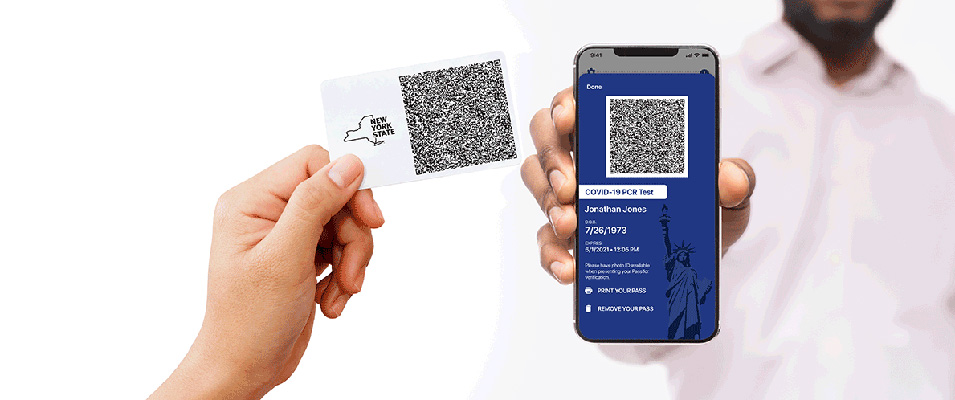By Emmanuel Borrell
New Yorkers can now use a COVID-19 ID verification to return to their daily lives. In late March, Governor Cuomo introduced the Excelsior Pass, a digital app that will help the people of New York show proof of their current COVID-19 diagnosis or their vaccination, to fasten the process of reopening venues and businesses throughout the state.
The Excelsior Pass is under IBM’s Digital Health Pass Solution. It provides secure verification of health credentials such as test results and vaccination records, without exposing personal information, according to the governor’s office.
After the success of an NFL Playoff game hosted by the Buffalo Bills on January 16, Cuomo announced the reopening of sports and entertainment venues would start at the end of February. The attendance was held to a 10% capacity and fans had to show proof of a negative COVID test within 72 hours before the event. The Excelsior Pass is seen as a quicker and easier process to show verification of either the COVID Vaccine or a negative COVID test.
Not everyone is a fan, as critics contend the ID is an invasion of privacy. Some technology experts feel that this app was rushed and that it could lead to exposing personal information, according to Albert Fox Cahn, the executive director at Surveillance Technology Oversight Project (STOP), is a non-profit organization that fights against large surveillance systems in New York City, especially in neighborhoods that have Muslims, and African Americans. STOP has been involved with many surveillance lawsuits, such as the NYPD searching cell phones and NYPD and MTA facial recognition systems.
According to its website, STOP’s goal is, “to transform New York City and State into models for the rest of the United States of how to harness novel technologies without adversely impacting marginalized communities.” In a press release, the group expressed its disagreement with the introduction of the Excelsior Pass, stating that “the vaccine passports will undermine vaccination efforts and expand inequity in the vaccine roll-out.” Cahn said that vaccine passports could put New Yorkers at risk because they are unproven and discriminatory.
Government officials from neighboring states have expressed concerns with the “vaccine passport.” Most notably the governors of Florida (Ron DeSantis), Iowa (Kim Reynolds), Tennessee (Bill Lee), and Texas (Greg Abbott), to name a few, have issued executive bans on vaccine passports.
The American Civil Liberties Union (ACLU) discussed how this platform can be very invasive to people’s privacy and used stats to further prove its ineffectiveness. “Many people don’t have smartphones, such as people who are low-income, have disabilities, or are homeless, as well as more than 40 percent of people over age 65,” the groups says, citing a study done by PEW Research. It is not just individuals, but entire communities which might be affects, says the ACLU. “That would affect all of our freedoms, but will have a particularly chilling effect on communities of color, including immigrant communities, that are already over-policed.”
Although it will hasten the process of reopening New York and returning to a normal life, the concerns of privacy will play a key role in the rollout and application.



